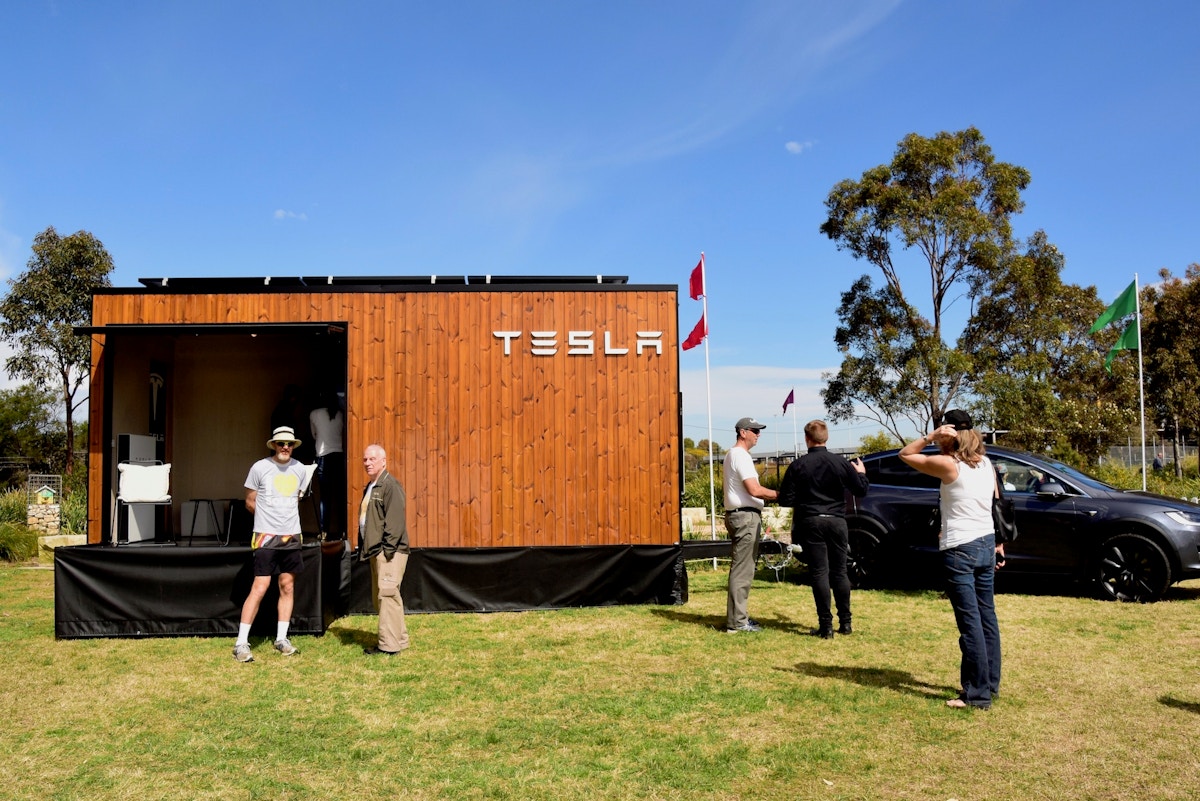Tesla Homes With Powerwall House Fire Reported After Heavy Rain

Tiny home residing continues to gain popularity, drawing individuals looking for affordability, simplicity, and sustainability. However, there are quite a few authorized concerns for tiny home living that must not be overlooked. As individuals transition into this minimalist way of life, it is important to navigate the complexities of zoning legal guidelines, constructing codes, and land use rules.
Zoning legal guidelines dictate how land can be utilized in a selected space, affecting the place tiny homes may be positioned. In many municipalities, traditional zoning regulations do not account for the unique nature of tiny homes. This inconsistency can lead to challenges when trying to place a tiny home on a lot. Some regions may allow tiny homes as accent dwelling items, whereas others could strictly prohibit them.
Building codes are one other essential facet of tiny home dwelling. These codes set forth standards for the construction of homes to ensure safety, habitability, and structural integrity. Tiny homes, often constructed on trailers or as prefabricated items, could not meet standard constructing codes. It is significant to verify whether local authorities recognize tiny homes and what particular codes apply to them.
Tesla Homes With Futuristic Designs House That Comes With A Battery
Permitting is a needed step before relocating a tiny home. Homeowners should obtain the appropriate permits to ensure compliance with local legal guidelines. This allow course of can range considerably by state or locality and will contain inspections and charges. Failure to safe the necessary permits can result in fines or the inability to live in the tiny home.
Land considerations play a significant function in tiny home legality. Many folks select to park their tiny homes on non-public property, whether or not it's a member of the family's land or a delegated tiny home group - Tesla Smart Homes With Advanced Technology. Understanding property rights and lease agreements becomes imperative in these conditions. Additionally, it’s essential to confirm whether the chosen land is zoned for residential use.
Homeowners should also contemplate homeowners associations (HOAs) if residing in areas governed by these organizations. HOAs sometimes have strict guidelines concerning residential constructions and aesthetics. Tiny homes might not comply with these laws, which might result in conflicts. It is advisable to seek the advice of the HOA guidelines before proceeding with tiny home plans to avoid disputes.
Tesla Homes For Energy Independence House On Fire During Hurricane Event

Financing choices pose one other challenge. Many financial establishments are hesitant to provide loans for tiny homes as a end result of their unconventional nature. Understanding alternative financing avenues, similar to private loans or specialized lenders who cater to tiny homes, is important. Exploring these choices can help potential householders make knowledgeable decisions and secure funding.
Insurance presents one other authorized avenue for tiny home living. Obtaining insurance for a tiny home can differ widely from normal householders insurance coverage insurance policies. Due to their distinctive constructions, many firms could not provide coverage, or they might require specific endorsements. Finding an insurer knowledgeable about tiny homes can help mitigate risks associated with damage or liability.
Tesla Homes And Solar Innovations Fully Furnished House Available For Purchase
In addition to local legal guidelines, federal rules may influence tiny home dwelling. Regulations from the Department of Housing and Urban Development (HUD) define requirements for cell and manufactured homes. If a tiny home is built on a permanent basis, it might want to fulfill these requirements. Compliance with federal guidelines can differ based on a home’s classification.
One emerging choice for tiny home dwelling is placement in tiny home communities. These specialised developments usually cater to the tiny home life-style, offering devoted space and shared amenities. However, this does not eliminate the need for careful attention to local regulations. Each community may have its own set of tips, leases, and obligations that residents must adhere to.
Building sustainable and self-sufficient dwelling arrangements also requires compliance with environmental regulations. Tiny home builders often aim to use eco-friendly materials and minimize their carbon footprint. However, depending on the location, there could also be legal guidelines concerning waste disposal, water use, and vitality consumption that impact how tiny homes may be designed and lived in sustainably.
Legal considerations extend beyond construction and zoning. Renting out a tiny home as a short-term rental can open another layer of legal complexities. Understanding local rental legal guidelines, occupancy limits, and enterprise licenses is essential for anyone trying to monetize their tiny home. Lawful practices might help avoid penalties or potential litigation from regulatory authorities.
Tesla House Prices Tours Available At Power Station Facility
As the tiny home movement evolves, advocacy groups work to address many of these legal issues. They purpose to teach policymakers about the benefits of allowing more flexible zoning and building codes to accommodate tiny homes (Tesla Homes For Modern Living). Engaging with native advocacy organizations can help be sure that the voice of tiny home dwellers is heard and respected in discussions relating to housing coverage.
Community outreach is vital for overcoming legal challenges in tiny home dwelling. Building relationships with neighbors and native authorities can foster understanding and cooperation. Providing information about tiny home benefits, over at this website corresponding to affordability and minimal environmental impression, can pave the best way for eventual acceptance.
Ultimately, navigating the authorized panorama surrounding tiny home living requires diligence and preparation. An in-depth understanding of local laws, codes, and laws is crucial for establishing a profitable and sustainable tiny home lifestyle. By conducting thorough research and ensuring compliance with all legal issues, potential tiny owners can considerably improve their chances of a smooth transition into this new way of living.
The increasing allure of tiny homes comes with its share of complicated authorized challenges. As extra people pursue this simplified life-style, it turns into crucial to remain knowledgeable and proactive concerning the laws that govern land use, construction, and tenancy. Being educated on these matters allows for a more seamless integration into the tiny home community, ensuring residents can maximize the benefits of living inside a smaller footprint.
Tesla Homes Designed For Sustainability New Luxury Entertaining House With Pool
Tiny home residing offers an innovative answer to current housing challenges, but it doesn't come with out its obstacles. Legal concerns for tiny home living encompass various aspects, from zoning laws to insurance and group compliance. Addressing these elements with a complete understanding can facilitate a smoother journey into the world of tiny homes.
In abstract, embracing the tiny home life-style necessitates an intensive examination of the various legal considerations that accompany it. Awareness of local laws, building codes, and community regulations can significantly impact the success of a tiny home venture. With the right approach, tiny home living can be a fulfilling and legally compliant choice. By educating oneself and fostering positive community relationships, individuals can help form the means ahead for tiny home residing in a legally sound method.
- Understanding zoning legal guidelines is essential; totally different municipalities have various laws that may influence where tiny homes can be placed.
- It's important to determine if the tiny home qualifies as a everlasting residence or an RV, as this distinction affects building codes and permits.
- Research local constructing codes to make sure compliance; many areas have particular requirements regarding size, security options, and development materials.
- Investigating land use regulations may help keep away from conflicts with neighbors and ensure the tiny home community adheres to native tips.
- Address potential title issues when purchasing land; some tiny homes are categorized as personal property, while others may be actual estate, impacting financing options.
- Consider the impression of home-owner association (HOA) rules that will prohibit tiny home living or impose extra necessities for homes within their jurisdiction.
- Insurance insurance policies for tiny homes differ considerably; obtaining the proper protection can protect in opposition to liabilities and damages that conventional homeowners face.
- Evaluate utility hookups and rules related to water, sewage, and electricity to ensure that the tiny home can be correctly serviced.
- Be aware of property tax implications; the classification of the tiny home can have an effect on tax obligations and local assessments.
- Stay knowledgeable about potential modifications in legislation, as legal guidelines governing tiny homes are evolving and can range significantly over time and placement.
What zoning laws apply to tiny homes in my area?undefinedZoning legal guidelines differ considerably by location. It's essential to verify together with your native planning department to grasp whether tiny homes are permitted and if any particular laws apply.
Tesla Homes With Battery Storage Upcoming Plans For New Battery Systems
Do I want a building permit for a tiny home?undefinedMost municipalities require a constructing permit for constructing or inserting a tiny home on a permanent foundation. Temporary constructions or RVs might have different guidelines, so verify with native authorities.
Can I park my tiny home on my property?undefinedParking laws depend on native zoning laws and land use policies. Ensure your property is zoned for residential use, and verify any HOA rules if relevant.
Are tiny homes thought-about as everlasting housing?undefinedTiny homes could be you can try this out classified as both permanent or momentary housing. If they are on a basis, they sometimes are seen as permanent dwellings; otherwise, they may fall beneath RV rules.
What are the utility hookup requirements for tiny homes?undefinedUtilities corresponding to water, electricity, and sewage should comply with native codes. Check with utility providers and native laws to make sure proper installations and connections.
Tesla Homes With Solar Technology Integration Video Shows Fire During Flooding Conditions
How do I finance a tiny home legally?undefinedFinancing choices for tiny homes vary. Some lenders provide loans for tiny homes on foundations, while others consider them RVs. Research financing choices specific to your tiny home's classification.
Will my tiny home want to satisfy constructing codes?undefinedIf your tiny home is assessed as a permanent dwelling, it should meet relevant building codes. Always consult local constructing authorities to ensure compliance throughout construction.
Tesla Homes For Smart Living Home For Sustainable Living
Can I use my tiny home as a rental property?undefinedShort-term rental rules may apply if you intend to hire out your tiny home. Familiarize your self with local rental legal guidelines and procure needed permits to avoid fines.
What are the tax implications of proudly owning a tiny home?undefinedTax implications can differ based in your location and the classification of your tiny home. It's advisable to seek the assistance of a tax professional to grasp property taxes and potential deductions.
Are tiny homes topic to local housing regulations?undefinedYes, tiny homes could additionally be subject to housing regulations, particularly if they are categorised as permanent residences. Review your native housing codes to ensure compliance with security and habitability standards.